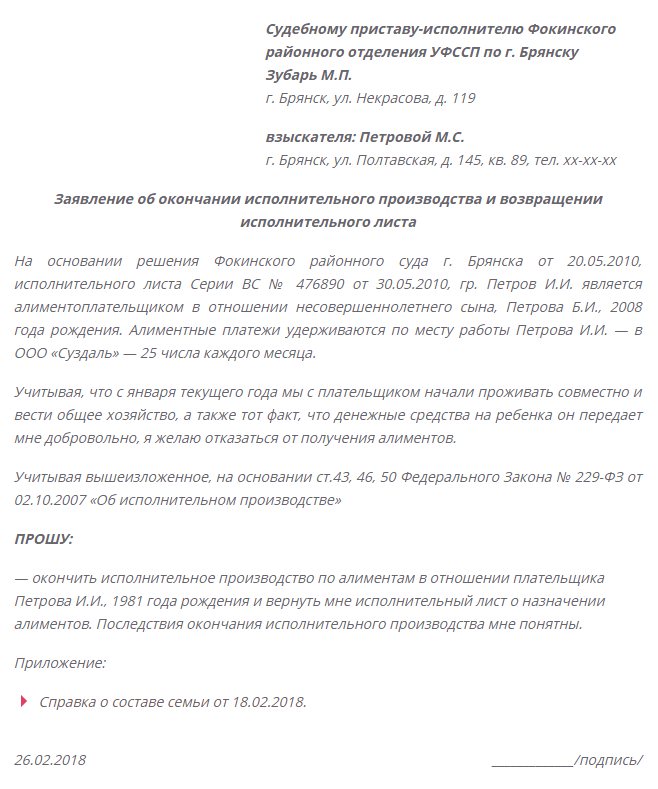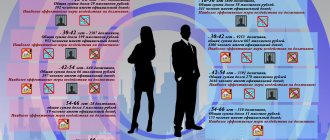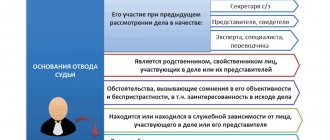Waiver of alimony
Russian legislation does not consider the issue of officially refusing alimony payments. The law states that all actions of parents must not affect the rights of the child.
It happens that one of the parents, due to psychological reasons, refuses to receive child support payments, although their own cash reserve does not contain a large amount of money.
In this case, the guardianship authorities are trying to prove that the child is being kept in unsuitable conditions due to the lack of additional funds allocated for his maintenance. Such a refusal by a parent may result in the deprivation of his parental rights.
Is it possible to withdraw an application for alimony?
Since the legislation does not contain a direct prohibition on the cancellation of the collection of alimony at the initiative of the recipient, he can withdraw the application and refuse financial support for the child.
To do this, you must follow a certain procedure for returning documents. The main condition that must be met is that the actions of the former spouses cannot violate the rights of the child.
For example, if an ex-wife who has a small income refuses alimony from the father of the child, the intervention of the guardianship and trusteeship authorities is necessary.
If government officials determine that a child needs additional financial support, they can enforce child support, despite the decision of one of the parents to refuse it. Such a situation may even result in deprivation of parental rights.
When, as a result of refusal of alimony, the child’s financial situation does not worsen, it is not difficult to withdraw the application. The task is to follow a certain procedure for returning documents, depending on the stage of their consideration by the government agency.
Revocation of alimony funds
How to submit an application for alimony and what is needed for this? To request a waiver of alimony for a minor, contact:
- to a notary's office;
- to court;
- to the bailiffs.
The grounds for choosing the method of registration of refusal are:
- stage of the alimony collection process;
- method of collecting funds;
- the presence or absence of a peace agreement between the parties.
Both parties initiate the refusal of alimony payments.
How to refuse alimony
How to submit an application for alimony and what should be taken into account? To revoke a writ of execution or a statement of claim, you need to write a new application for the return of documents.
Collectors most often refuse to receive additional funds for child support in the form of alimony for the following reasons:
- Drawing up a peace agreement with the ex-spouse on voluntary payments;
- In connection with the request of the alimony payer;
- A one-time payment of alimony in exchange for the return of a document.
Bailiffs are not particularly interested in these reasons, so they return documents without problems if all the rules are followed:
- The application is correctly drawn up;
- The plaintiff contacted the FSSP at the place of execution of the claim and left all the documents there for three days until the sheet and document were issued.
This is also important to know:
Deductions under a writ of execution from wages: the procedure for calculating alimony and features of the procedure
Before starting the process of waiving alimony payments, be sure to consult with an experienced lawyer so as not to encounter problems in the future.
Application for refusal before trial
This method is the simplest and most peaceful than all the others, since in order not to have to withdraw the claim, you do not need to file it.
Free legal consultation We will answer your question in 5 minutes!
Ask a Question
In order for this decision to become official, it is confirmed with the help of an alimony agreement between the parties. A sample agreement is provided below.
Free legal consultation
We will answer your question in 5 minutes!
Ask a Question
Refusal of alimony payments, regardless of which party is the initiator of this action, must be competently justified and supported by arguments.
The following is a substitute for alimony payments:
- valuable property;
- a one-time large sum of money;
- payment for studies and additional classes.
Not a single notary office will certify an alimony agreement, which indicates a complete refusal of financial assistance from the payer.

How long is the document valid?
Debt can be collected under a writ of execution within a certain period of time. The legislation defines it as three calendar years. The time spent searching for the debtor, obtaining IP by bailiffs, and more is subtracted from it.
If within 3 years the document has not been submitted to the Federal Bailiff Service, then it no longer has any legal force. In this case, you won’t have to think about how to get a writ of execution for alimony. Despite this, the payer's debt still remains. In this regard, it is possible to file a lawsuit again.
The court finds representatives of the FSSP guilty of inaction if the document was submitted on time, but the collection was not made. In this case, the debt will be transferred from the organization itself to the applicant.
Bailiff's decision
The appeal is considered within five days after the bailiff receives the application. Also at this time, a conclusion is made on the satisfaction of the plaintiff’s demands. Next, the enforcement proceedings of the case are suspended, and a resolution is sent to the recipient. After this entire procedure, alimony funds must be paid by the person voluntarily.
Obtaining a writ of execution
The recipient of alimony payments for a child studying at a higher educational institution is given the necessary form immediately after the bailiff makes his decision on the case. A copy of this resolution is also made. Documents are issued upon a personal visit to the bailiff service, as well as through Russian Post.
What does refusal of alimony promise?
The forced collection of alimony payments will cease. Bailiffs will no longer withdraw funds from the payer's wages.
The recipient has the right to file a new claim and a writ of execution to resume the collection of alimony if he does not have enough of his own funds to support the child. The law does not prohibit taking and submitting an application several times. The main thing is that both parties are informed about the issuance of any resolution.
A writ of execution for alimony payments can be submitted to the FSSP authorities at any time before the child reaches the age of majority or when any other compelling reasons arise for stopping the transfer of alimony funds for maintenance.
If you have written a waiver of claims and withdrawn the application, then an application for renewal of collection can only be carried out if significant circumstances and facts for this arise.
Legal consequences of revocation of a writ of execution
It should be said that revoking the writ of execution does not mean abandoning alimony payments. In this case, the collection of alimony is still carried out, which means that the obligation from the alimony payer is not removed.
This is also important to know:
Section of alimony: drawing up a statement of claim and the procedure for collecting it
To revoke a writ of execution is simply to replace the forced collection of alimony payments with a voluntary one.
With voluntary collection, alimony funds are paid in the same amount, with the same dynamics and frequency, as with forced collection. Payment reductions are not permitted.
The payer's debt does not increase if the recipient revokes the writ of execution. This means that if the alimony payer refuses voluntary payments, the amount of alimony debt will not increase.
At any time, the recipient of alimony funds has the right to apply to the SSP with the same writ of execution a second time. From the date of filing the relevant application, the judicial proceedings will be started again.
In this court proceeding, current alimony payments and arrears will be forcibly collected.
The law provided for the possibility of collecting alimony for the period when the writ of execution was revoked.
If the recipient of alimony funds provides evidence that the payer did not voluntarily pay the sums of money, then the bailiffs will calculate the amount of the debt (for a period of no more than 3 years). If funds were transferred from the payer, collection of alimony will begin only from the moment the enforcement proceedings are resumed.
How to withdraw an appeal through court?
Now let’s find out how to withdraw an application for alimony when initiating legal proceedings. The appeal must be submitted to the same judicial body that made the initial decision, or to the arbitration court at the location of the bailiff (Part 1 of Article 45 of the Federal Law No. 229-FZ).
This process involves several stages:
- The applicant formalizes the response by drawing up an application for waiver of claims. The parent must provide the court with reasons for their decision to refuse.
- The judge considers the presented arguments regarding compliance with the rights and material interests of the child, involving the guardianship service.
- The process is completed if the verification does not reveal any violations in relation to the minor dependent. After the judge makes a decision, the plaintiff can withdraw the application for alimony.
In the appeal, the applicant must indicate the reasons for the revocation and attach to the letter a copy of his passport, the child’s birth certificate and a writ of execution (court order or sheet). As an attachment, you can add an agreement of the parties to waive alimony payments or a receipt for a one-time payment of financial support.
After satisfying the request to terminate the alimony case, the plaintiff sends a notice to the bailiff. Review of this document is carried out within three days. The decision taken comes into force immediately (Part 4 of Article 45 229-FZ).
If the plaintiff decides to refuse alimony before the start of enforcement proceedings, he may not use the received executive document, that is, not send it to the employer or bailiff. In this case, you only need to notify the FSSP of the decision not to initiate enforcement proceedings against the alimony payer.
Who can be the initiator
The recipient of alimony payments or his official representative has the right to withdraw the application for forced collection.
If the recipient himself does not have the opportunity to represent his interests, for example, if he has not reached the age of majority, then his rights are represented by a trusted representative (parent, guardian, trustee).
If a citizen is able to defend his rights, but does not want to do this on his own, then he has the right to transfer these powers to any other authorized person. To transfer powers, a special power of attorney is drawn up between the parties with the help of a notary.
Submitting an application
The parent with whom the children live always has the right to submit a new application for alimony (more details in the article: in what cases can you re-apply for alimony?). If the previous application was withdrawn from the court and a writ of execution was not issued, then a new one must be submitted to the judicial authority.
If the enforcement proceedings were withdrawn from the FSSP, a new application should be sent to the bailiff, attaching a writ of execution. The parent should remember that child support is not intended for him, but for the children. Guided by their interests, documents giving grounds for payments should be formally drawn up.
We invite you to familiarize yourself with: Performance of work in accordance with the contract
Before alimony payments can be terminated, jurisdiction must be determined.
Such decisions are made by justices of the peace. Territoriality is determined based on the place of residence of either the plaintiff or the defendant.
Refusal of child support payments in the absence of consent from the second parent
After filing a claim, the refusal of child support payments can be formalized and submitted to the judicial authorities along with all the necessary evidence. Is it possible to withdraw an application for alimony if one of the parties categorically disagrees with it?
To understand the process better, consider practical situations:
Situation 1 . The plaintiff must provide evidence that the child is not an adult, but does not lack funds for his maintenance, since he now lives with a parent who is obliged to pay child support for him by law.
Example 2 . A person who is unable to make alimony payments due to a difficult financial situation, illness or disability must provide appropriate documents to confirm this fact.
Example 3. If the payer is able to provide evidence that the recipient does not have a legal right to alimony, since he is deprived of parental rights, is incompetent, is addicted to drugs, suffers from alcoholism, etc.
Consequences of refusing a claim for alimony
The withdrawal of an application for the collection of monetary support entails the termination of enforcement proceedings and the application of measures for forced deduction of funds from the debtor.
After the approval of the relevant resolution, money is no longer deducted from the income of the alimony worker, the seizure of his property is lifted, and other restrictions applied to him become invalid.
On the issue of collecting existing alimony debt, if the claimant specifically requests this, additional proceedings will be initiated. The materials on the terminated main case will remain in the archives, and it will no longer be possible to submit a similar petition a second time.
However, if the proceedings were completed as a result of the cancellation of the writ of execution or after a change in the circumstances that previously served as the basis for the calculation of alimony, the case for their collection is restored at the initiative of the bailiff or at the request of the claimant.
An application to initiate enforcement proceedings may be accepted again, without restrictions, in the event of failure by the debtor to fulfill alimony obligations to a minor or incompetent citizen.
The withdrawal of an application for alimony from the bailiff must be done very carefully, since the consequences it entails may be irreparable. Our lawyers will help you deal with them, weighing all the pros and cons. Consultation from them is available by phone and online, and you can get it completely free of charge.
FREE CONSULTATIONS are available for you! If you want to solve exactly your problem, then
:
- describe your situation to a lawyer in an online chat;
- write a question in the form below;
- call Moscow and Moscow region
- call St. Petersburg and region
Save or share the link on social networks
- FREE for a lawyer!
Write your question, our lawyer will prepare an answer for FREE and call you back in 5 minutes.
By submitting data you agree to the Consent to PD processing, PD Processing Policy and User Agreement
Useful information on the topic

5
Alimony for an adult child, student after 18 years of age
In the vast majority of cases, child support payments are made before the child reaches...

3
Until what age is child support paid?
Alimony payments are a serious blow to the budget of any person...

3
How to reduce the amount of alimony
The amount of alimony payments in some cases can reach quite substantial...

3
Alimony penalty calculator
Calculating the penalty is not too complicated, but if the debt gradually increases...

4
Responsibility and punishment for non-payment of alimony
Late payment of child support may result in fines, administrative and...

26
Amount of child support for one child
After the birth of a child, significant changes occur in the family, which...
Re-applying for alimony payments after refusal
If a parent is forced to again demand child support payments from his ex-spouse, then he has a legal right to do so.
The legislation of the Russian Federation allows the renewal of alimony payments until the child reaches adulthood.
You can re-collect alimony in three ways:
- draw up a child support agreement;
- apply to the court for a court order;
- submit a writ of execution to the SSP.
The actions of parents should not in any way infringe on the rights and interests of their child. Alimony payments should only be refused if there are compelling reasons for doing so.
How to get alimony after refusal?
Let’s say that, due to life circumstances, the child’s mother refused to receive financial assistance from the father. She withdrew her application submitted to the SSP earlier, or the court accepted her refusal. But time passed and a good reason appeared to receive from the payer money that legally belongs to the child. There can be any reasons - the financial situation has worsened, the child has fallen ill and requires rehabilitation and recovery, or there is a need to pay for education. What can you advise a mother who, after refusal, wants to resume child support payments?

As we noted earlier, parents can terminate the Child Support Agreement and draw up a new one – a waiver. In the same way, the waiver Agreement is canceled and an agreement is concluded that establishes the conditions, amounts and terms of payments. The main condition for drawing up the document is the voluntary consent of the man and woman. And, of course, respect for the rights of minors.
If the child’s mother officially refused to receive payments in court (in divorce proceedings), alimony can be collected at any time - until the child reaches adulthood. After completing the process, the claimant should contact the bailiff and provide a court order or an extract from the decision, on the basis of which proceedings will be initiated.
If the claimant previously withdrew her application and the enforcement proceedings were suspended, it can be resumed in the same way. To do this, you need to contact the SSI, provide an application and an executive document.
The claimant may demand alimony for the past period, but no more than for the last three years before re-applying.
Facebook
Alimony payments under writ of execution
The legislation of the Russian Federation clearly establishes the income from which alimony payments are deducted. Such income includes most possible types of income.
Free legal consultation We will answer your question in 5 minutes!
Free legal consultation
We will answer your question in 5 minutes!
Ask a Question
Call: 8 800 511-39-66
The deduction occurs as follows:
- First, all types of official income of the payer are determined.
- Income tax is deducted from each income.
- The resulting total amount is used to calculate payments.
This is also important to know:
What to do if the husband does not pay alimony and the bailiffs are inactive: how to legally influence the process
The amount to be paid by the alimony payer is determined by the judicial authorities. It cannot be more than 70% of his total income.
When the writ of execution is delivered to the bailiff, he performs the following actions:
- Collection proceedings begin.
- Brings information about this to the court, the defendant and the plaintiff.
- Sends a writ of execution to the alimony payer’s place of work.
- Finds out information about the availability of accounts and material assets from the payer.
- Contacts the police department to search for the payer if he is hiding.
- Holds the alimony payer accountable if he evades his obligations.
The received funds are transferred to the recipient's account. In addition to the official amount of alimony, an enforcement fee is also deducted. It is worth considering this information before taking out a writ of execution for alimony.
Reasons for termination
The following are considered valid reasons for refusing alimony:
- an oral agreement on financial support for the child by the second parent in an amount that should not be less than the payments due under the writ of execution, while material support can mean not only monetary amounts, but also the purchase of clothing or other things, payment for studies, vouchers, sports clubs;
- financial assistance from relatives or friends of the second parent;
- one-time payment of a large sum, transfer of real estate, car or other property.
Sometimes the parties can reach an agreement to waive alimony in exchange for permission to travel to another country. However, this is a dubious reason that may not convince the guardianship authority.
Reasons for refusing alimony such as pride, hostility or guilt are also not convincing, although they often exist. In this case, the interests of children are infringed.
The absence of an official job for the second parent is an unconvincing argument. The law provides for a mechanism for calculating alimony in this case, and the bailiff service must ensure payments.
Is it possible to legally cancel alimony? Yes, there are several exceptions in the Family Code of the Russian Federation that allow you to avoid alimony payments:
- No matter how trivial it may sound, the first and main reason for canceling alimony is when the child reaches the age of 18. In this case, this happens automatically. The exception is those families in which a child has become an adult who is seriously ill and has no ability to work and, as a result, the ability to provide for himself.
- Cancellation of alimony is possible due to the child living with the father (or another person who previously made payments). In practice, there are cases when a parent takes the child to live with him, and alimony continues to be paid to the account of the ex-spouse, because the court decision on payments is still valid. In this case, a lawsuit is filed that determines the minor’s place of residence and reassigns alimony to another person.
- If paternity is challenged in court.
- Cancellation of payments to adult children is possible if their ability to work is proven (or the fact that they receive income regardless of their health problems).
- The basis for the cancellation of alimony is the death of one of the participants in the alimony legal relationship. The obligation to pay alimony is not inherited.
- If a voluntary agreement was signed and another way of repaying alimony obligations was chosen.
- If the child to whose account child support was paid was officially adopted by the new second parent.
- If the recipient of alimony (an adult) had a difficult financial situation, but now it has changed for the better.
- Cancellation of an adult's disability.
The legislator establishes in what cases alimony payments are canceled. Termination always requires a judicial act (except when the child reaches the age of majority).
Death
Alimony refers to obligations directly related to the individual (both the payer and the recipient). It is this factor that indicates the impossibility of transferring alimony obligations by inheritance or other grounds of succession.
If the father has doubts about paternity, he can try to challenge it in court.
As a general rule, if a child was born no more than three hundred days after the divorce, then the spouse is automatically recognized as his father. This fact can be challenged, but only through judicial proceedings. To challenge paternity, compelling reasons are required. The most reliable evidence is considered to be genetic testing.
The fact of renunciation of paternity does not deprive the parent of the obligation to pay child support. Even in the absence of contact with the child and unwillingness to maintain any connections, such a father is obliged to make payments.
In this situation, the responsibility to provide for the minor falls entirely on the shoulders of the new parent; accordingly, the previous parent is deprived of all responsibilities, but also rights (for example, he will not be able to claim alimony from such a child in the event of incapacity for work).
We suggest you read: Eviction of minor children from an apartment by the owner
If both have been deprived of their rights, then the Guardianship and Trusteeship Authority may begin to collect alimony from them.
If, after deprivation of parental rights, the child is adopted, then payments stop.
Reasons for revoking parental rights may include:
- Malicious failure to fulfill parental responsibilities.
- Treatment of a child using violence (both physical and psychological).
- Use of narcotic and psychotropic substances, alcoholism.
- Committing intentional crimes against a child.
Other reasons
Other reasons why alimony payments are terminated include:
- The child reaches adulthood.
- Establishment of working capacity (if payments were made to a disabled adult).
- Cancellation of adoption.
- Achieving the conditions stipulated in the alimony payment agreement.
- Conclusion on exemption from alimony (for example, if the child was given a piece of real estate from the payer).
- If the child moves to the payer.
Moreover, if the child reaches the age of majority, there is no need to perform additional actions to cancel payments; everything is done automatically (except for cases when the child continues to study full-time).
What portion of the salary is calculated for alimony? The answer is presented in the article “
What percentage of salary is alimony?
».
How alimony is collected for maintaining a wife for up to 3 years can be found here.
Withdraw the claim
Revocation and cancellation of a writ of execution are two different things. The revocation of the writ of execution for alimony is carried out by the claimant himself, and the payer applies to the judicial authorities to cancel the writ of execution. In any case, the claim is justified by compelling reasons for withdrawal or cancellation. For example, a child has recently been permanently living with a child support payer. If a parent wants to cancel the writ of execution, he has the right to ask the court to do so.
The recipient may face the following circumstances due to which he may revoke the writ of execution:
- Conclusion of a voluntary agreement between the parties;
- The parents did not come to a consensus regarding the financial support of the child;
- All alimony payments were replaced by one single payment, but in a large amount.
- Conclusion of a non-property agreement between parents.
The reasons for canceling the writ of execution for alimony are considered separately. In most cases, the child must be competent and prove his or her independence.
A voluntary agreement between former spouses can be concluded at any time before the child reaches adulthood. An agreement is a promissory note certified by a notary. Also, in case of non-fulfillment of payments, the claimant can return the document to forced retention.
Parents are obliged to support the child. Despite this, many parents provoke conflicts in connection with the payment of alimony, so the child’s representatives have to withdraw the writ of execution.
If the payer transferred large property, for example, a house, to the child, or transferred a large sum of money one-time, then he is released from child support obligations.
The defendant is sometimes able to play with parental rights in order to force the withdrawal of the writ of execution. This parental behavior is illegal, but it happens quite often. For example, the father refuses to give consent to the sale of property belonging to the child, or to travel abroad of the Russian Federation. In this case, you should not think about how to revoke the writ of execution for alimony; you just need to go to court and provide evidence of blackmail.
Due to the change of residence of the claimant, the writ of execution cannot be revoked. Inform the bailiff about the fact of the move in writing.
When can a refusal be issued?
The procedure for collecting alimony has its own stages. And the refusal of funding depends on what stage the process is at, as well as on what basis the withholding occurs. In addition, it matters whether there is consent to the refusal of the father and mother.
So, what do you need to do to refuse child support?
Refusal based on oral agreement
It is easy to stop alimony payments if the ex-wife did not fill out the corresponding application at all, and there is no Agreement. If the mother does not need financial support and has decided that child support from her ex-other half is simply not needed, she has no need to file a lawsuit.
And if the man and woman have not officially registered the marriage, the official dissolution procedure will not take place. Therefore, child support issues will not be raised.
If there is a stamp in the passport, the divorce of spouses with children takes place in court. Then the issue of paying alimony will definitely arise. The parent with whom the children remain may refuse payments by declaring this in court. At the same time, it is necessary to provide reasoned arguments that such help is not needed, and the children will be provided with everything they need. The most convincing argument for the judge is the Agreement on alimony payments, signed by the divorcing person and notarized. It is important that the agreement between the parties does not violate the rights of children.
Please note: spouses who have common minor children can also have their marriage dissolved at the civil registry office. More details about this in our article.
Waiver of alimony in the Agreement
Even if the former spouses have already entered into an Agreement that stipulates the conditions and amount of alimony payments, it can be canceled at any time. And draw up a new document - about the refusal of alimony.
The procedure for drawing up a new document is standard - the agreement of the parties is drawn up in writing, the document is certified by a notary. When drawing up a Waiver Agreement with a notary, parents must have with them civil passports, a minor’s birth certificate, and a previously concluded Agreement.
The notary will certify the document if its terms do not infringe on the interests of the minor. Of course, refusing funding will raise some questions. The ideal option is documentary evidence that the father will pay a large amount of money equal to the total amount of child support. The notary will check whether the amount of the lump sum paid corresponds to the total amount of deductions. If it is significantly less, the certification of the alimony agreement may be refused, since it violates the rights of the minor.
Refusal of alimony in the presence of enforcement proceedings
If the court made a decision and ordered the parent to pay child support, is it possible to issue a refusal to receive it? Can. The mere existence of a decision does not mean that the claimant is obliged to take any measures and demand money. Some parents at this stage stop the collection procedure and do not contact bailiffs. The basis for initiating enforcement proceedings is an official application for withholding funds with a writ of execution or Agreement attached to it.
What to do if the claimant has filed an application with the SSP, the enforcement case has been registered and payments for the child are forcibly withheld from the parent? Even then, the recipient can contact the bailiff with a statement and revoke the writ of execution. In this case, production will be stopped. But the application must indicate the reason why the claimant decided to refuse to receive payments.
Note! You can refuse to receive alimony for a certain period, after which the enforcement case will be resumed.
We talked more about the revocation of the executive document in this article.
Application for revocation of an executive document (sample)
The law does not impose any special requirements for the content of the document. The application must provide the following information:
- information about the recipient - the territorial department of the SSP where the enforcement case was initiated;
- information about the claimant and the alimony payer (full name, place of residence, contract telephone numbers);
- information about the executive document - which court and when the decision was made or the Agreement was signed. When the claimant applied to the SSP and an enforcement case was initiated;
- request to return the writ of execution;
- reason for revocation;
- date, signature of the applicant.
Sample application for revocation of a writ of execution
The application must be submitted in two copies. One remains in the file, the second (with a registration mark) is returned to the claimant.
You can read more about this in the article “Termination of enforcement proceedings for alimony.”
It is important! Revocation of a writ of execution and termination of a previously registered case are different procedural actions.
- In the first case, the basis for termination of payments is the claimant’s application.
- The grounds for termination of the collection case are listed in Art. 43 Federal Law “On Enforcement Proceedings”.
So, according to Part 2, Clause 2, Art. 43 of the Law, the enforcement case is terminated by the bailiff if the court accepts the refusal to collect alimony.
Therefore, in order to stop alimony payments under the initiated enforcement proceedings, you should file a statement of claim in court. After 10 days after registering the claim, the judge will make a decision obliging the executor to terminate the proceedings.
Sample application for termination of enforcement proceedings for alimony
Legal consequences of revocation
The revocation of a writ of execution does not coincide with the refusal of alimony. The claimant himself cannot refuse financial support for the child, since this violates the property rights of the minor. And the revocation of the writ of execution does not relieve the payer from the obligation to support the child. Possible consequences:
- The obligation to support the child remains.
- The alimony debt does not increase, even if there is a debt.
- Enforcement proceedings can be started again at any time the recipient wishes.
- Revocation does not clear the debt.
Is it possible to refuse alimony if there is debt?
If there is a debt, the application for refusal to collect alimony will suspend the accrual of penalties for late payment of benefits. The revocation of the writ of execution is not grounds for repayment of the debt, therefore the payer is obliged to reimburse the amount in full.
The recipient can re-submit the writ of execution to FSSP employees, and the case of collection of payments will be resumed. The legislation provides for the possibility of receiving alimony for the entire period during which enforcement proceedings were suspended. However, there is a limitation - alimony can be reimbursed for a period not exceeding 3 years.
Important! If the child’s mother provides evidence that during the specified period the payer did not provide voluntary financial assistance to the child, the bailiff will calculate the arrears of alimony, including for the period of revocation of the writ of execution.
The payer can avoid forced payment of debt accumulated during the period of suspension of enforcement proceedings. To do this, you must provide the bailiff with checks and bank receipts confirming the voluntary transfer of funds for child support.
Additionally
Abandonment of a child may mean no obligation to pay child support.
It happens that a parent, whose responsibility is to pay child support, thinks about giving it up. It is worth mentioning that in Russian legislation there is no such concept of “child abandonment,” excluding the mother’s right to leave the baby in the maternity hospital immediately after birth.
This is also important to know:
What liability is provided for non-payment of alimony
The birth of a child imposes certain responsibilities on parents and it is prohibited to voluntarily renounce them.
There are several cases when parents lose their rights to a child, but even they do not always exempt them from paying child support:
- Lack of communication with the child, as well as waiver of parental rights (alimony is still collected until the child is adopted, for example, by a stepfather or stepmother).
- Challenging parental rights.
Consequences of deprivation of parental rights and abandonment of a child:
- Loss of the opportunity to participate in the child’s life and raise him;
- Loss of rights to meet with the baby;
- Obligation to pay child support until adulthood or death.
There are no significant advantages to abandoning a child - only disadvantages and even more stringent and complex conditions. A parent who maintains at least some contact with the child can still count on the leniency of the claimant or the court in the event of a delay in child support payments, but one deprived of all rights to the child is unlikely to arouse pity from the other parent or the judge.
How to get alimony if you have previously refused it
If one day the recipient of alimony funds refused them due to one reason or another, and after some time realized that without additional amounts of money it was impossible to properly support the child, he has the right to demand the restoration of payments.
The situation when the plaintiff again submits an application for the return of the alimony obligation to the payer is associated with various reasons: the illness of the recipient or the loss of a permanent source of funds. This can also happen if the child urgently needs a medical examination, treatment, medication, payment for studies, etc.
Parents, having agreed, can refuse the previous alimony agreement and draw up a waiver of alimony. Cancellation is carried out in a similar way.
At the end, an agreement is drawn up, which displays the conditions, terms and amount of payments for the child. The main thing is that both parents make a mutual decision on this issue, and also preserve all the rights and interests of the child.
If one of the parents, who is the recipient of alimony funds for the maintenance of a child, refuses financial assistance, then the renewal of collection can be demanded at any time before the child reaches the age of majority. This is done by filing a claim with the courts. After the court decision is made, the plaintiff goes to the bailiff service and shows them the court order, which will serve as the basis for initiating proceedings in the case.
If the defendant has already withdrawn the claim once, then the official document on alimony from the bailiffs must be renewed, and this is done by providing a writ of execution.
Can a bailiff refuse to accept an application to revoke a writ of execution?
No, this is not within his authority. Moreover, the recipient of alimony funds himself determines what will happen in the future with the writ of execution and his own rights.
The bailiff must explain the consequences of withdrawing the writ of execution, as well as the procedure for filing it again, if necessary.
It is important that the three-year period for presenting a document for execution does not apply to the payer’s alimony obligations!
Interaction with bailiffs
The need to contact officials of the bailiff service arises in the event of a debtor’s failure to comply with the provisions of an agreement or a court decision on the payment of alimony.
In such a situation, the recipient (hereinafter referred to as the collector) sends an application for forced deduction of funds from the payer, and the bailiff undertakes to organize the collection of alimony from wages and/or other income in his favor.
This process is called enforcement proceedings, and it consists of 5 stages:
- Consideration of the submitted petition and, if it is consistent, acceptance.
- Initiation of proceedings in the case.
- Identification of sources and amounts of income of the debtor.
- Making a decision to withhold alimony from the payer’s salary, pension, benefit or other income (in the case where there is none, to sell his property at auction to pay off the debt from the proceeds).
- Carrying out the activities specified in the resolution (submitting a document to the debtor’s place of work, seizing property, etc.).
The end of the proceedings occurs after sending a copy of the writ of execution to the place of work of the alimony worker to withhold monthly payments or after the termination of the grounds for their payment. But in case of further failure to comply with the still valid collection order, the case may be reopened.









